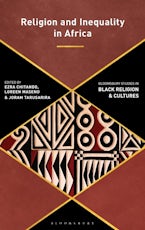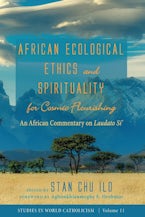- Home
- history
- biography & autobiography
- religion
- Modern Muslims

Modern Muslims
A Sudan Memoir
By: Steve Howard
230 Pages
- Paperback
- ISBN: 9780821422311
- Published By: Ohio University Press
- Published: September 2016
$26.95
The fate of sufist-inspired Sudanese Muslim intellectual Mahmud Muhammad Taha briefly hit the headlines in the international press when then dictator Ja’far Numayri had him executed for alleged apostasy in January 1985. The bitter irony: The execution was carried out on the basis of the very "shari'a laws" introduced by Numayri in September 1983, against which Taha and his small movement, the "Republican Brothers" (al-ikhwan al-jumhuriyyun), had spoken out emphatically.
Although Taha’s execution was ultimately politically motivated, it reflected a fundamental conflict. For decades, Taha and his movement had advocated an unorthodox understanding of Islam based on a radical re-interpretation of the Qur'an, which had brought them into conflict with representatives of Wahhabi and Salafi Islam in particular. The central importance of Taha as an enduring inspiration and living model for his followers explains the decline of the reform movement after the execution of the “master” (ustadh), as he was called by his supporters. Nonetheless, Taha’s ideas remain influential, and have entered into the discourse of other progressive Muslim thinkers.
The academic literature on Taha and the Jumhuriyyun focuses primarily on their writings and ideas, and only to a lesser extent on the movement itself. With Modern Muslims: A Sudan Memoir, Steve Howard presents a very personal account of his time in the ranks of Taha’s movement as an “observing participant” in the early 1980s. Having originally come to Sudan for sociological studies in 1982, Howard had a great spiritual interest in African Sufism. Soon after his arrival, he became acquainted with Taha and his movement and quickly joined it, although his insufficient knowledge of Arabic initially stood in the way of his appropriation of their ideology (fikra). Beyond the complex contents of Taha’s teachings, Howard was attracted to the life of the community, with its ideals of peace, turning towards God, and pronounced asceticism. Even as a foreigner, he was welcomed without any formal admission procedure.
Howard’s very personally written memoir seeks to underline the potential for a modern, autochthonous Islamic movement for the promotion of social change, especially with regard to the tension between orthodoxy and a new understanding of religion (5). The title of the book reflects the self-image of Taha and the Jumhuriyyun as a group whose ideology and practice demonstrate the modernity of Islam to society, thus promoting God's message to the modern world.
Howard paints the picture of an optimistic and progressive social movement that at the same time exemplified the ideals of solidarity and peace to the rest of society, especially in the face of religious extremism and intolerance, of which the movement itself was often the victim. Its political agenda focused on human rights and democracy. Politics, however, was not the main focus of the movement. Their spiritual method (in the tradition of Sufism) aimed at individual striving for personal perfection through the greatest possible closeness to God. The Jumhuriyyun did not regard this aspiration as an end in itself; instead, it should serve social progress and help overcome poverty, inequality, injustice, and traditional backwardness. The concept is essentially evolutionary: it aims at an evolution as conceived in the qur'anic revelation. Taha’s main work, “The Second Message of Islam” (1967), bears this in its title. His reformist thinking aims not least at revealing the comprehensive equal rights of men and women. Contrary to the traditions of many Muslim societies, this also implies the full participation of women in religious practice, which the Jumhuriyyun also exemplified in their community.
While Modern Muslims accounts for the movement’s ideological bases, the book’s most engaging aspects are the many descriptions of personal encounters and experiences, which also give some impression about the attractiveness of the movement—and its limits. With his memoir, Howard provides the reader with valuable insights into the community spirit (76) and the religious practices of the Jumhuriyyun. For almost three years, in an increasingly difficult time of persecution, Howard experienced hospitality and solidarity within the movement, also witnessing their efforts to become a societal exemplar along with their missionary activities in many parts of the country.
Howard also describes the social and political controversies surrounding Taha’s teachings, including open hostilities in mosques and in public. Through their ideological, principled opposition and public resistance to the so-called “September Laws” of 1983, the movement was drawn into fierce political conflicts, which eventually led to the imprisonment of Taha and dozens of leading fellow combatants, and finally to his execution for alleged “apostasy from Islam.” The Numayri regime, Howard shows, used the defamation and persecution of the Jumhuriyyun last not least to mobilize political support from the Muslim Brothers around Hasan al-Turabi, and religious scholars close to them.
Of course, Howard tends toward a certain idealization of Taha and his Jumhuriyyun. The movement’s at times messianic features—their elitist self-image as avant-garde, their striving for closeness to God, and their veneration of the person of the master—certainly stood in the way of broader acceptance in Sudanese society. Howard is well aware that the progressive claim of ideology stood in a certain tension with the spiritual elements in Taha’s teachings and the religious practices of the movement, rooted in the tradition of Sufism (137). However, he does not address the fact that Taha initially welcomed Numayri’s military coup in 1969, because he hoped that the new "socialist" regime would bring about economic and social reforms that would disempower Sudan’s traditional elites. This support cost Tahasome political credibility in the eyes of democratically-oriented intellectuals.
Even in light of the (not very extensive) scientific literature on the Jumhuriyyun, Howard’s Modern Muslims is undoubtedly an authentic, highly thoughtful, and easily readable account of a personal experience with this movement that invites its readers to direct their attention to progressive, democratic initiatives in the Muslim world.
Jürgen Rogalski is an Islamologist working as Information Research Specialist in Middle Eastern Affairs at the German Institute for International and Security Affairs in Berlin.
Jürgen RogalskiDate Of Review:June 26, 2018
Steve Howard is Professor of media studies and African studies and the director of the Ohio University Center for International Studies. A sociologist by training, he has studied and worked all over the African continent. He directed Ohio University’s African Studies Program for twenty-five years and has published several scholarly articles about the Republican Brotherhood Movement.











